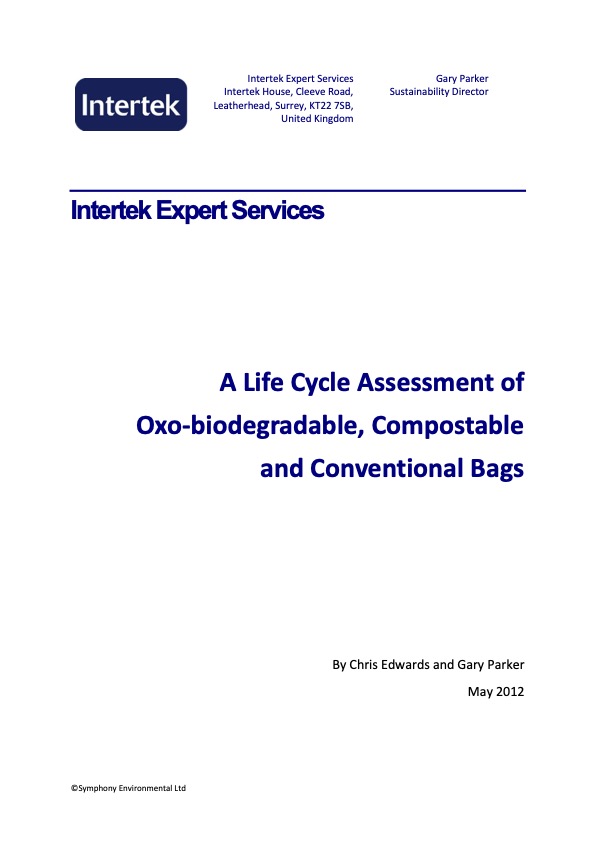Conventional plastic carrier bags and bread bags are widely used in the UK, with carrier bags often given away free of charge by supermarkets. Many of these bags contain a pro-degradant an additive such as Symphony’s d2w causes the bag to degrade abiotically and biodegrade after its useful life without affecting the bag’s functionality.

Bio-based bags are relatively new products made from agricultural crops or a blend of crop-based and oil-based materials. This study considers the cradle-to-grave life cycle of each of the three alternatives. The functional unit is a 19.1-liter bag for carrier bags and an 800-gram capacity bag for bread bags. The same weight, material content, production energy, and distribution distances were assumed for conventional and oxo-biodegradable bags, with a 30% higher weight for bio-based bags.
An impact assessment was conducted to assess the bags over 11 environmental impact categories including global warming potential (carbon footprint), abiotic resource depletion (use of non-renewable resources such as oil and metals), and litter.
This assessment was written by Chris Edwards and Gary Parker for Intertek Expert Services in May 2012.
